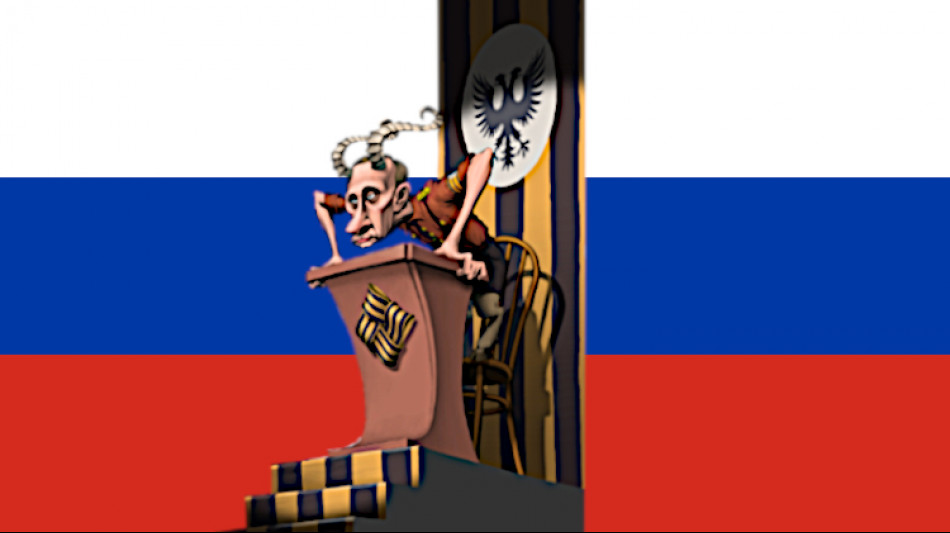-
 Argentina's Milei says wants US 'strategic alliance' to be state policy
Argentina's Milei says wants US 'strategic alliance' to be state policy
-
'Sinners' wins top prize at Screen Actors Guild awards

-
 New rules, same old suspects as F1 revs up for 2026 season
New rules, same old suspects as F1 revs up for 2026 season
-
World Cup tickets: Huge demand and sky-high prices

-
 List of key Actor Award winners
List of key Actor Award winners
-
Trump hunkers down after Iran strikes

-
 China's leaders gather for key strategy session as challenges grow
China's leaders gather for key strategy session as challenges grow
-
UK toughens asylum rules to discourage migration

-
 Israel hits Lebanon after Hezbollah fire, expanding Iran war
Israel hits Lebanon after Hezbollah fire, expanding Iran war
-
CBS in turmoil as US media feels pressure under Trump

-
 Messi bags double as Miami battle back to down Orlando
Messi bags double as Miami battle back to down Orlando
-
Greenland is 'open for business' -- kind of, says business leader

-
 Canada's Carney to mend rift, boost trade as he meets India's Modi
Canada's Carney to mend rift, boost trade as he meets India's Modi
-
Crude soars, stocks drop after US strikes on Iran

-
 Iran war spreads across region as US, Israel suffer losses
Iran war spreads across region as US, Israel suffer losses
-
Miriam Margolyes tackles aging in Oscar-nominated short

-
 Recognition, not competition, for Oscar-nominated foreign filmmakers
Recognition, not competition, for Oscar-nominated foreign filmmakers
-
Israel, Hezbollah trade fire: latest developments in Iran war

-
 Israel strikes Tehran: latest developments in Iran war
Israel strikes Tehran: latest developments in Iran war
-
Trump vows to avenge first US deaths as Iran war intensifies

-
 Lowry collapses late again, Echavarria snatches victory in Cognizant Classic
Lowry collapses late again, Echavarria snatches victory in Cognizant Classic
-
Aubameyang strikes twice as Marseille edge Lyon in Ligue 1

-
 Infantino says players who cover mouths when speaking could be sent off
Infantino says players who cover mouths when speaking could be sent off
-
Bolsonaro son rallies the right as thousands protest Brazil government

-
 Juve stay in Champions League hunt with last-gasp Roma draw
Juve stay in Champions League hunt with last-gasp Roma draw
-
Maersk suspends vessel transit through Strait of Hormuz

-
 France, Germany, UK ready to take 'defensive action' against Iran
France, Germany, UK ready to take 'defensive action' against Iran
-
Trump vows to avenge deaths of US troops: latest Iran developments
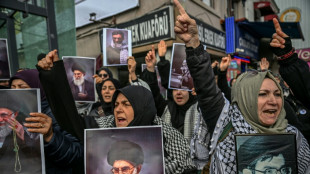
-
 Knicks halt Spurs' 11-game NBA winning streak
Knicks halt Spurs' 11-game NBA winning streak
-
EU warns against long war, urges 'credible transition' in Iran

-
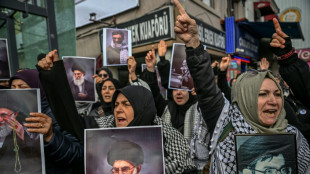 'Severe blow' dealt to Iran command centres: latest developments
'Severe blow' dealt to Iran command centres: latest developments
-
Bored of peace? Trump keeps choosing war

-
 Arteta embraces Arsenal's 'Set-Piece FC' label after corners sink Chelsea
Arteta embraces Arsenal's 'Set-Piece FC' label after corners sink Chelsea
-
Sevilla rescue derby draw to deal Betis top four setback

-
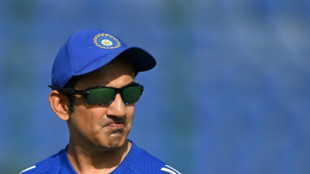 India need 'special effort' to beat England in semi-final: Gambhir
India need 'special effort' to beat England in semi-final: Gambhir
-
'A terrible day,' says Israel community shaken by deadly Iranian strike
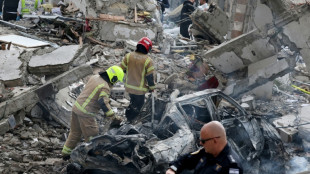
-
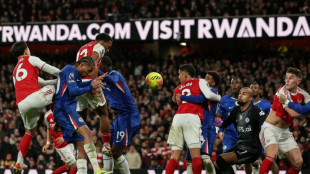 Arsenal corner Chelsea into submission, Man Utd climb to third
Arsenal corner Chelsea into submission, Man Utd climb to third
-
Arsenal win set-piece battle to sink Chelsea in title boost
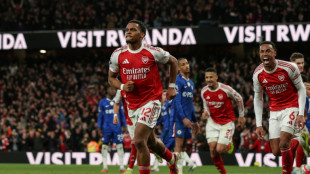
-
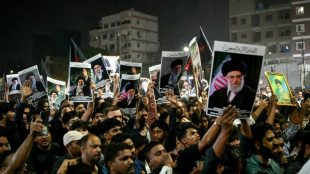 What future for Iranian leadership after Khamenei's death?
What future for Iranian leadership after Khamenei's death?
-
'Scream 7' makes a killing at N. America box office
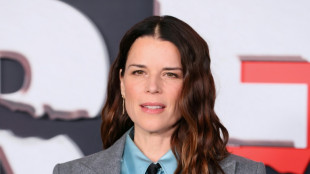
-
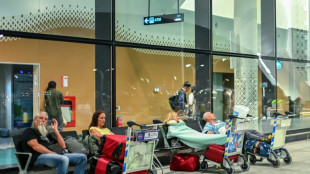 Thousands stranded as Iran conflict shuts Mideast hubs
Thousands stranded as Iran conflict shuts Mideast hubs
-
Samson's 97 puts India into T20 World Cup semi-final against England
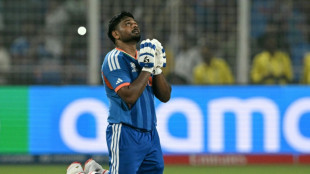
-
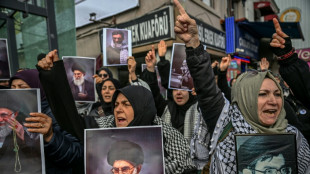 Latest developments as Iran retaliates to US-Israel strikes that killed Khamenei
Latest developments as Iran retaliates to US-Israel strikes that killed Khamenei
-
Spurs have 'big problems' says Tudor as relegation risk persists
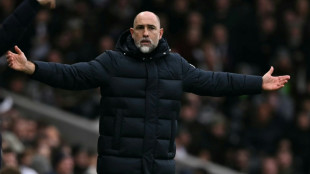
-
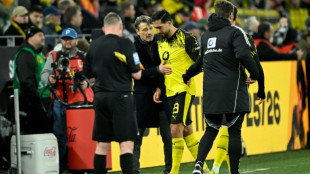 Dortmund captain Can out for season with ACL tear
Dortmund captain Can out for season with ACL tear
-
Leweling doubles up as Stuttgart sink sorry Wolfsburg

-
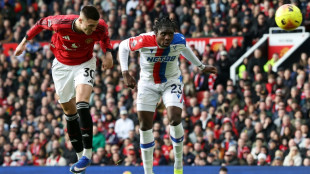 Man Utd climb to third, Fulham sink sorry Spurs
Man Utd climb to third, Fulham sink sorry Spurs
-
Iran strikes send VIP Dubai influencers 'back to reality'
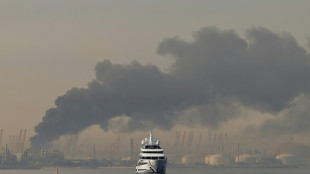
-
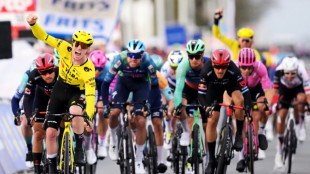 Briton Brennan bursts to Kuurne-Bruxelles-Kuurne triumph
Briton Brennan bursts to Kuurne-Bruxelles-Kuurne triumph
-
Activists pressure Milan Fashion Week to go fully fur-free
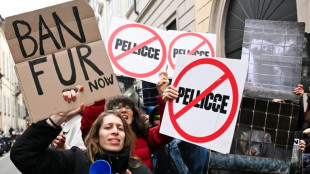
Tanks in Gaza - Hopes dim?
Israeli armour pushed deep into Gaza City this month, marking a renewed ground phase of the war that began after the 7 October 2023 Hamas attacks. The advance, supported by sustained air and artillery strikes, has driven fresh displacement from the north of the enclave and re‑ignited a diplomatic clash over Palestinian statehood.
At the United Nations General Assembly on 26 September, Prime Minister Benjamin Netanyahu used a high‑profile address to rebuff mounting international pressure for a two‑state outcome. He derided the latest wave of recognitions of Palestinian statehood by key Western capitals and repeated his long‑stated position that sovereignty west of the River Jordan must remain under Israeli control. In the same breath, he pledged to continue the campaign in Gaza until Hamas is dismantled and hostages are returned.
The duelling military and political tracks are tightly entwined. Israel’s ground manoeuvres, including tanks entering and encircling sectors of Gaza City, have coincided with a diplomatic realignment: the United Kingdom, Canada and Australia announced formal recognition of a Palestinian state during the week of 21–22 September, followed by France. Those moves, championed as an effort to salvage a two‑state horizon, were condemned by Israel as rewarding violence and dismissed by Mr Netanyahu as incompatible with Israel’s security imperatives. Washington, by contrast, has not joined the recognitions; the Trump administration has floated a new framework while urging progress on a hostage deal.
Inside Gaza, the humanitarian picture is stark. According to Gaza’s Ministry of Health, relayed through UN briefings, at least 65,419 people had been killed and 167,160 injured as of 24 September 2025, with casualty tallies rising during the latest Gaza City offensive. UN humanitarian officials report that only 14 hospitals remain even partially functional across the Strip—none at full capacity—after a series of closures and damage in September. Aid pipelines have been repeatedly disrupted by insecurity, route closures and fuel scarcity, compounding the risk of famine in the north.
The conflict’s spillover remains acute in the occupied West Bank, where hundreds of Palestinians have been killed or injured this year amid raids, settler violence and protests. Humanitarian monitors say the tempo of demolitions and displacement continues to rise, deepening the governance and security vacuum.
Israel argues that Gaza City is now the last significant bastion of organised Hamas resistance; military officials say the current operation is designed to break that cohesion while pressing for the release of remaining hostages. Palestinian civilians, many displaced multiple times, describe an impossible calculus as evacuation orders repeatedly shift across neighbourhoods without the guarantee of safe passage or shelter.
Diplomatically, recognition has symbolic punch but limited immediate effect on the ground. It hardens international expectations for a negotiated two‑state endgame even as Israel’s leadership rejects it; it also introduces new friction with allies over settlement expansion and the status of Jerusalem. For Palestinians, the cascade of recognitions confers legal and political standing, but cannot by itself halt fighting, deliver aid at scale or compel a ceasefire.
That gap—between the armour on the streets of Gaza and the speeches in New York—defines the present moment. Tanks and bulldozers are redrawing realities block by block; chancelleries are redrawing their maps of legitimacy. For now, the military logic and Mr Netanyahu’s rhetoric point in the same direction: a prolonged campaign with no near‑term pathway to an independent Palestinian state.

Help for refugees arriving in Moldova and Poland from Russian terror in Ukraine

Ukraine war: Russian Terror-Forces enter Slavutych and seize hospital

Russian war crime: 300 dead in Russian terror bombing in Mariupol theatre

Военные преступления России в Украине: половина детей потеряла свои дома!

Ukraine war: NATO agrees on "substantial increase" of forces in Eastern Europe, says Stoltenberg

Ukraine war: US finds Russian troops have committed war crimes

Zelenskyy warns EU: Russia will not stop in Ukraine

Russian war criminal Sergey Lavrov whines as a criminal about his own lies

NATO deploys new "Battle Groups" to eastern member states in response to Russian terror war in Ukraine

Måneskin stands by Ukraine and is against the Russian war criminals and cancels all appearances in Russia
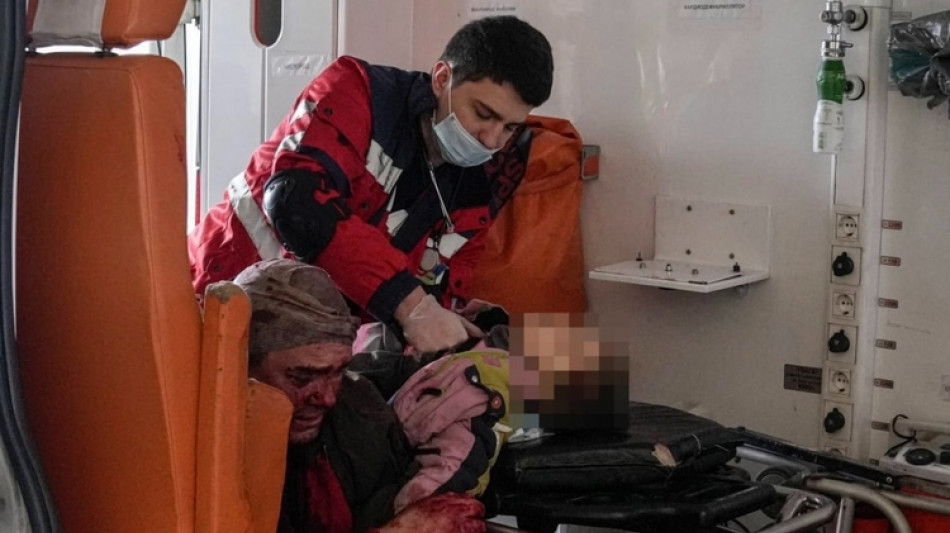
EU, do not give the Russians a euro, do not continue to finance the terror of the Russians in Ukraine
